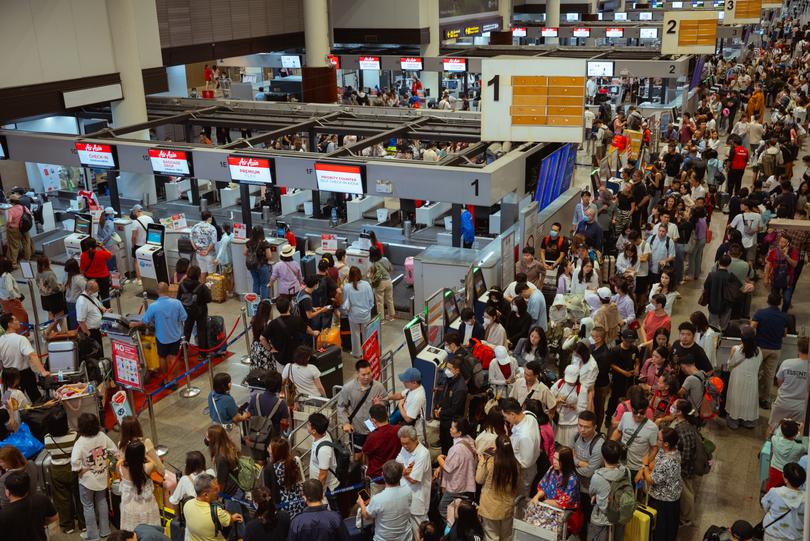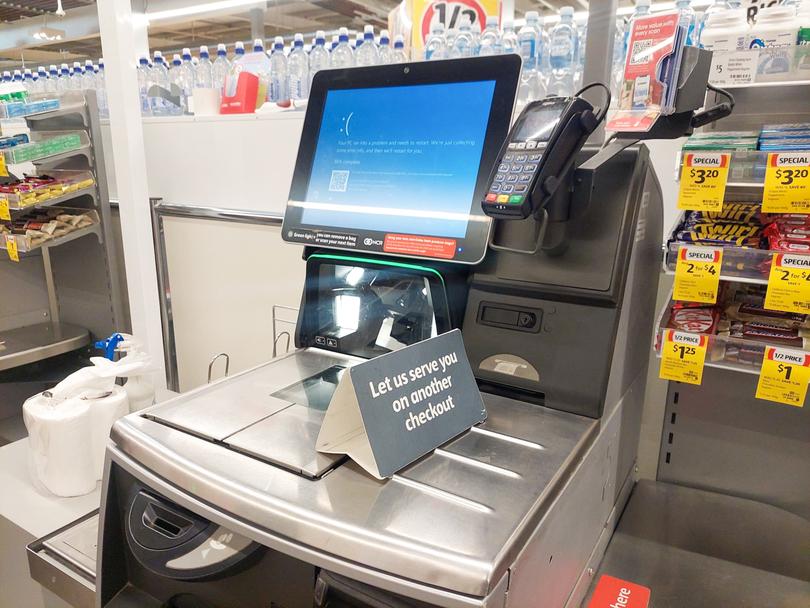KATE EMERY: The real lesson from the CrowdStrike debacle is not what you think
KATE EMERY: The biggest lesson from arguably the single-biggest IT outage in history is not what you think.

How much you care about the CrowdStrike clustercuss very much depends on what your weekend was like.
Did yours start early when the blue screen of death left you tragically unable to work and forced to brainstorm in the pub instead?
Or was your Saturday night spent curled on an airport floor, making a pillow out of your hand luggage?
Sign up to The Nightly's newsletters.
Get the first look at the digital newspaper, curated daily stories and breaking headlines delivered to your inbox.
By continuing you agree to our Terms and Privacy Policy.Are you a Mac-obsessive who saw 8.5 million computers going down as the perfect opening to spread pro-Mac propaganda in the smuggest way possible?
Or were you one of those tasked with papering over failed digital systems with pen, paper and cash or patching the error to get systems back online?
Regardless, the biggest lesson from arguably the single-biggest IT outage in history is not what you think. It’s this simple: get used to it.
The scale of this outage might have been record-breaking — Y2K two decades behind schedule — but it won’t be the last of its kind.

This time it was, unbelievably, a dodgy software update. The software developer responsible for pushing it out is, presumably, still in the foetal position under a desk somewhere.
Next time it might be hackers from Russia or China or scammers just in it for the money. Possibly all three.
It was the inconvenience of it all that made headlines: the planes and trains that were cancelled, the supermarkets forced to shut their doors and the office workers desperate to work (it takes all kinds, apparently).
But CrowdStrike’s failure was more than an inconvenience: it toppled key services at hospitals, cost businesses billions and exposed vulnerabilities for scammers, who moved faster than Democratic donors getting behind Kamala Harris overnight.

It was a cock-up of tremendous proportions.
It’s also the reality of life in a digital society.
I don’t say that that as someone with gold bullion under the floorboards and a fear that my every move and purchase is being tracked (they probably are, I just don’t particularly fear Big Brother knowing how fast my kids’ raspberry addiction is bankrupting me).
I say that as someone who doesn’t believe this scare will do much to slow the push towards a digital-only society, even as it’s exposed our reliance on IT systems.
For a while, maybe, some of us will be sure to keep cash on hand.

Companies will, reasonably enough, question if they’re overly reliant on a single system and what contingencies they have in place for the next emergency.
But I give it a week, maybe a month, until that $50 at the back of your wallet gets spent and you don’t bother to replace it.
Because, the thing is that digital life is — for most people — really, really convenient.
We swipe to pay. We click to transfer. We check-in for that flight from the backseat of the Uber on our way to the airport.
We don’t think too hard about what’s running in the background of our PC or our phone to keep it working and our data (mostly) safe.
We certainly don’t understand how the movement of billions of zeroes and ones allows us to run a business from our phone, use a QR code to order dinner or play Mortal Kombat with a friend in Vietnam.
The price we pay for the convenience we enjoy is that, every now and again, the whole thing is going to go completely wrong.
Blue screen of death wrong.
Sleeping in the airport wrong.
Billions wiped off the global economy wrong.
If that’s a price we’re willing to pay — and I think that is is — we had better get used to it.
